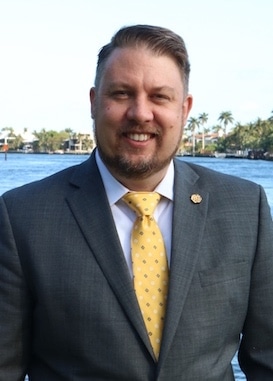
Christians should be concerned by the recent international March for Science that happened this past April. We should be uneasy that so many people felt that they needed to march in order to have their vocations validated. We should be alarmed by this fact because it indicates that the global church has radically failed to live up to its responsibility of vocational nurture and care.
About a month ago, on April 22, 2017 –appropriately coordinated with Earth Day– more than 600 cities around the world participated in gatherings meant to express validation for “the very real role that science plays in each of our lives and the need to respect and encourage the research that gives us insight into the world.” Hundreds of thousands of people globally marched in solidarity to “encourage people to appreciate and engage with science.” The articulated multi-purposed goal of the events’ organizers was to build “a powerful, international, interdisciplinary movement” in order to “strengthen the role of science in policy making; improve science outreach and communication; advance science education and scientific literacy, and foster a diverse and inclusive scientific community.”
I think that this event should be sending shockwaves throughout the global church because it is representative of the fact Christians are not doing a good job of communicating the Gospel message. It seems apparent that we are not rightly sharing the Good News of Christ’s rescue mission to humanity in ways that are encouraging people to participate in Christ’s redemptive purposes on earth. I say this because, if this life-changing Gospel were being communicated, scientists and technologists alike, from all over the earth, would not feel the need to be crying out for their God-given vocations to be affirmed.
It appears that, somewhere along the way, the church universal has forgotten to place the proper emphasis on the fact that being a Christian isn’t just limited to Sunday morning church attendance. Being a follower of Jesus is a life-transforming event that should impact every aspect of our lives, every day of our week. And so, since much of the average persons’ week is spent working, the church universal needs to begin to educate Jesus’ adherents toward teachings that better integrate their faith with their work. To this end, there may be no greater need than Christians in the fields of science and technology.
As a pastor who has garnered international attention for my commentary on theology and emerging technology, I have been continually confronted by this pastoral need time and time again. At first this reality manifested itself in the form of phone calls and emails from numerous religiously oriented scientists and technologists from all over the world. These folks had read my commentary and were fascinated that a pastor would outwardly express interest in these fields. Time after time I received communication from individuals seeking advice. In nearly all of the circumstances, affirmation was being sought to confirm that indeed, God valued these folks’ calling into their respective scientific or technological fields.
What I soon began to realize was that the need for scientific and technological affirmation from the church went far beyond the people who worked in those fields. The need often extended to anyone who regularly used products or services that had scientific or technological origins. It included religious people who even had interest in the scientific or technological understandings of our existence. Simply put, the need extended to nearly everyone.
Meghan O’ Gieblyn’s adapted essay entitled God in the machine: my strange journey into transhumanism that was recently featured in The Guardian exemplifies this need. The piece depicts her personal struggle with the intersection of her faith, or perceived lack thereof, and science/emerging technology. As a person who had been wounded by a theology void of humility and grace, Meghan had turned to science/tech for answers to explain questions of ultimate meaning. The culmination of her beautifully haunting article is a discussion that she and I had about these topics. To her surprise, my affirmation to her that indeed these spheres of thought had genuine intersection left her with a spark of hope that maybe her technological pursuits were not wholly detached from her spiritual interests.
Meghan’s experience is far more common than most people care to acknowledge. What is disturbing to me as a pastor is that this is such an immense and tangible need that almost no one in the Christian church is addressing. Aside from rare organizations like Made to Flourish that are intentionally trying to teach pastors how to integrate concepts of faith and work, the need is going virtually unaddressed.
To put a finer point on things, let me reiterate: hundreds of thousands of people globally took to the streets so that their vocations would be affirmed.
Fellow Christians, I think that it is time to face the stark fact that Christ calls the church to serve people better than this…
As featured in the Christian Post






























Thanks for this post. The whole relationship between Christianity and science has been framed as hostile. Evangelical leaders talk about science as if its purpose is to undermine faith. There are a few very outspoken atheists scientists, but the majority of scientists are spending their time doing science, not attacking faith. Perpetuating this artificial division can only be bad for faith – because it puts it at odds with the objective exploration of creation itself.